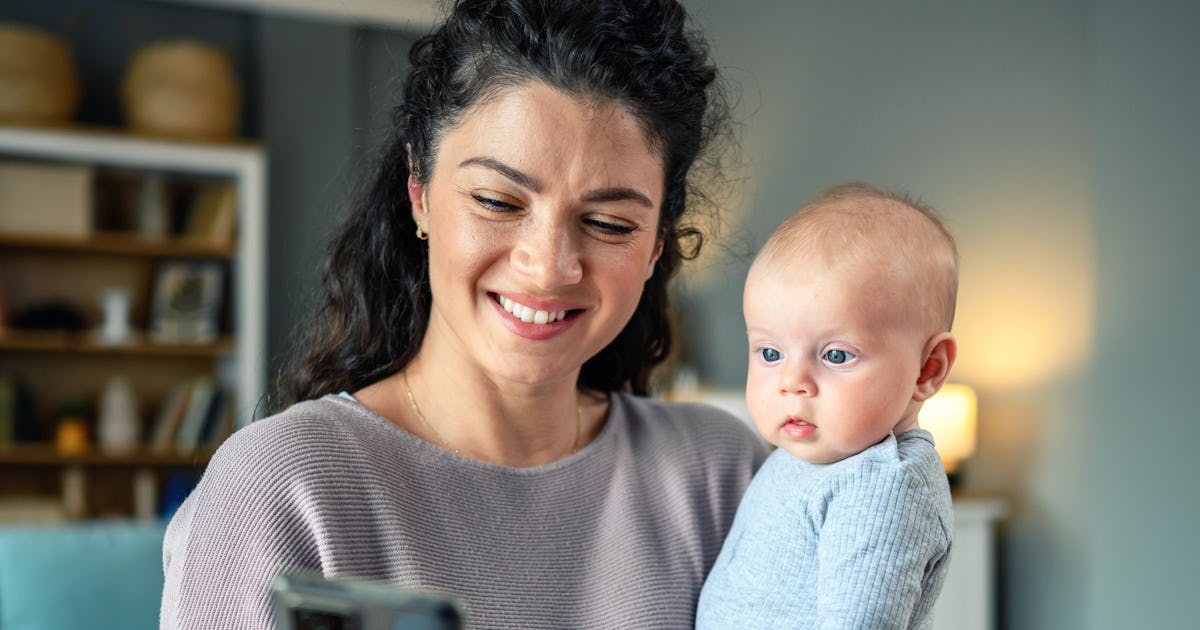
Lilian Schmidt, a mom living in Switzerland, has made a name for herself across media (Good Morning America, Fast Company, The New York Post) singing the praises of ChatGPT. Specifically, she half-jokingly refers to the AI tool as a “third co-parent,” that she’s trained to be her personal parenting assistant. On TikTok, she offers tips on how to get the most out of the tool via prompts to help with organizing the household, meal planning, and even sleep training children. In months, she’s already amassed more than 20,000 followers… but do parents actually want to co-parent with artificial intelligence?
There’s no doubt that AI seems to be everywhere these days: in our offices and certainly (and to the dismay of many teachers and professors) in schools. Early iterations of the omnibus Big Beautiful Bill included a moratorium on regulating AI for a decade. This provision was removed before being signed into law, but highlights the fact that the powers that be are thinking about programs like ChatGPT and Open AI as much as we are pondering whether we should use it for meal planning. Indeed, in 2024, the Under-Secretary-General of the United Nations Tshilidzi Marwala shared a warning against relying too heavily on AI tools. “When accuracy is confused with truth, there is high risk of harm,” he wrote. “Especially in fields where human judgment and ethical considerations are critical.”
Schmidt emphasizes that hasn’t gone full-on rise of the machines just yet. Ultimately, she told the Post, she remains the decision-maker. But, she says, AI has helped her make those decisions. “I get it to act as an experienced toddler coach or a meal planner. I ask it to coach me through the process,” Schmidt explained, continuing, “I asked ChatGPT to assume the role of a toddler therapist. Someone who understands their development.”
We conducted a brief survey on social media asking parents whether they found tools like ChatGPT useful in raising their kids.
Some used it for household management or one-off tasks
A minority of parents asked had used AI, but usually this was for either routine/mundane tasks — meal planning, for example — or explicitly non routine to-do items outside of their usual purview, like writing a difficult email to another parent or planning a party or vacation. Generally speaking, they used AI for the kind of tasks that were only tangentially connected to parenting… to mixed results.
“I’ve attempted to make use of it with scheduling or recipes and honestly it’s not effective or accurate,” says Tammy S. of Texas. “Our brains are better! It’s fine for basic math calculations —make this recipe yield 18 cupcakes instead of 12 — but when you think about the environmental and cognitive impact it’s not really worth it.”
A handful did use it for parenting purposes specifically
Some had found use for AI in the context of raising a kid. Helping to establish routines for a child with ADHD, or learning how to pose questions to a child with pathological demand avoidance (PDA). One dad asks ChatGPT to look over his child’s medical records to better explain them before doctors appointments so he can ask more informed questions.
“it gave me structure and was helpful to have an interactive ‘voice’ in real time while trying different methods,” offers Sandra K. of South Carolina. “But I will also admit that when it didn’t work I began considering hiring an actual human sleep consultant.”
Most had never use it, with a plurality being explicitly against it
Among the uninitiated, some were not anti-AI, but just hadn’t thought of it or couldn’t think of a great use for it in their daily lives. Many more, however, had ethical concerns about using the technology for anything, much less for something as sensitive and consequential as parenting. The enormous environmental impact of artificial intelligence came up quite a bit, as did a leeriness regarding the accuracy of the information.
“I am pretty staunchly anti-AI especially for interpersonal skills like parenting,” says Jonathan F. of Illinois. “I would have never thought to ask but, that also understand that ChatGPT is pretty much going to spit back buzzwords it thinks will make it sound human, but overall be wrong.”
Some were uncomfortable with how AI programs are generally trained (ie: analyzing and synthesizing established writing and work without crediting the original creators). More still were wary of outsourcing tasks that require critical thinking and/or emotional intelligence to a machine.
“I learned a long time ago to stay away from Google when it comes to parenting advice or medical advice and I don’t see AI as being any different, just less reading,” muses North Carolinian Breanna A. “As a parent, I have to do what I feel is right for my kids, not what someone not walking in my shoes thinks.”
TL;DR, parents are still approaching AI in very different ways
Schmidt’s digitally assisted parenting style may be helpful for some. It may even if a peek at an increasingly popular trend. But between the limitations of the technology and a still-wary attitude among many parents, it doesn’t seem like too many people are interested in “co-parenting” with ChatGPT any time soon…
Disclaimer: This content was automatically imported from a third-party source via RSS feed. The original source is: https://www.scarymommy.com/parenting/ai-is-everywhere-do-we-really-want-it-as-a-co-parent. xn--babytilbehr-pgb.com does not claim ownership of this content. All rights remain with the original publisher.






